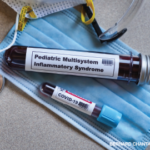Using this and other work, Dr. Yazdany noted that rituximab, JAK inhibitors, sulfasalazine, cyclophosphamide, tacrolimus, mycophenolate mofetil and azathioprine appear to be associated with worse outcomes for patients with COVID-19. She also stated that a similar signal is seen with moderate to high doses of glucocorticoids, including doses of 10 mg of prednisone or more per day.
Vaccination against SARS-CoV-2 has helped make inroads for patients, but many fully vaccinated patients on immunosuppressive drug regimens—especially rituximab—remain at risk for severe COVID-19 disease.
Autoimmunity & COVID-19
Next, Steven Holland, MD, director of the Division of Intramural Research and chief of the Immunopathogenesis Section, National Institute of Allergy and Infectious Diseases (NIAID), National Institutes of Health (NIH), Bethesda, Md., addressed attendees. Dr. Holland discussed the fascinating topic of COVID-19-induced autoimmunity.
Although more and more human inborn errors of immunity have been recognized in the medical literature, in recent years, researchers have identified mimics of these diseases due to the presence of anti-cytokine antibodies. Example: Dr. Holland described an adult-onset immunodeficiency with susceptibility to mycobacterial infections due to the presence of anti-interferon-gamma autoantibodies. Similarly, pulmonary alveolar proteinosis and disseminated Nocardia infection can be seen in many patients with autoantibodies to granulocyte-macrophage colony-stimulating factor (GM-CSF).
Dr. Holland said these types of anti-cytokine antibodies can be identified in some patients with autoimmune diseases, such as RA, systemic lupus erythematosus (SLE) and Sjögren’s syndrome, and such autoantibodies have been found to exacerbate or ameliorate relevant gene signatures in SLE and other conditions with respect to type 1 interferon.
In an interesting twist, researchers examined autoantibodies against type 1 interferons in nearly 1,000 patients with life-threatening COVID-19 and found at least 101 of these patients had the autoantibodies. In contrast, the autoantibodies were absent in 663 individuals with asymptomatic or mild SARS-CoV-2 infection and were found in only four of 1,227 healthy controls.5 In a study from this year, Abers et al. observed that neutralizing type 1 interferon autoantibodies are associated with delayed viral clearance and intensive care unit admission in patients with COVID-19.6
Whether or not COVID-19 serves to unmask anti-cytokine autoantibodies is still an area of active research, but Dr. Holland noted that what is clearly true of these autoantibodies is that they can have a significant effect on the function of the adaptive and innate immune systems. They can also play a large role in influencing the severity of COVID-19 infection and deserve increased attention.



